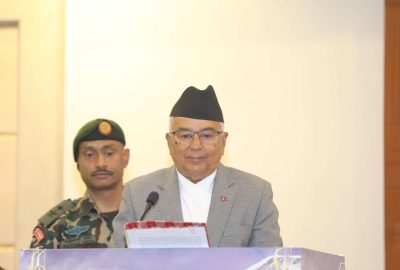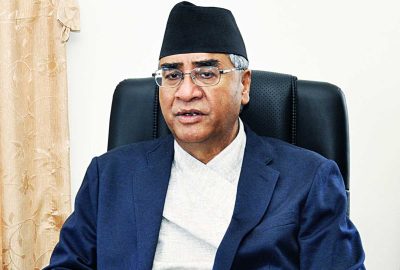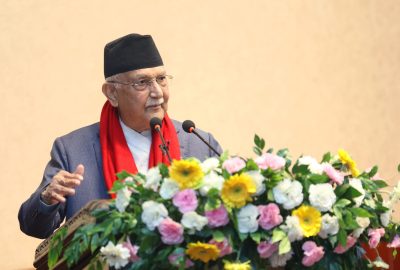Beware of dengue urges Ministry

Kathmandu: In the wake of rising temperature, dengue infection has also increased. Household collection of water is on rise, which however turns a haven for mosquitoes if not managed well.
Dr Gokarna Prasad Dahal at Epidemiology and Disease Control Division under the Health Ministry shared that as the season for monsoon is in sight, case of dengue is also increased. Massive awareness is essential against dengue infection. “The mosquitoes causing dengue lay eggs on the standing water stored at home or outside, which develops into larva and spread to biting people,” Dr Dahal said, adding that the spots at risk in terms of mosquito presence should be identified and campaign launched to destroy larvae and mosquitoes.
He further informed that local levels were directed to take action and make aware the people for necessary precaution. “A total of 33 local levels at risk of dengue since January were written directing them to launch ‘search and destroy campaign’ along with public awareness.
Aedes aegypti and Aedes albopictus species of mosquitoes bite people and spread dengue. These species lay eggs on clean water, which turn into larvae. The adult larvae bite people, resulting into high fever, headache, severe pain of eye ball, joints, limbs, and general body pain.
Those suffering these symptoms are urged to immediately consult doctors. Use of mosquito nets and full sleeve clothes are also suggested to avoid the mosquitoes. The standing water must not be left unattended but managed with cover or removal while use of mosquito repellent ointment can be a precaution, according to Dr Dahal.
Nepal had first traced dengue in 2004. Although there were no cases of dengue in 2005, it continued since 2006. In 2023 alone, some 51,143 people suffered from dengue in Nepal.
Popular posts
- Halesi Tuwachung municipality unveils logo
- Issue of climate justice needs to be raised in international forums : President
- There is no problem in running the government : Deuba
- PM Oli underscores private sector’s significant contribution to employment creation
- Speaker Ghimire issues ruling on oppositions’ demand



